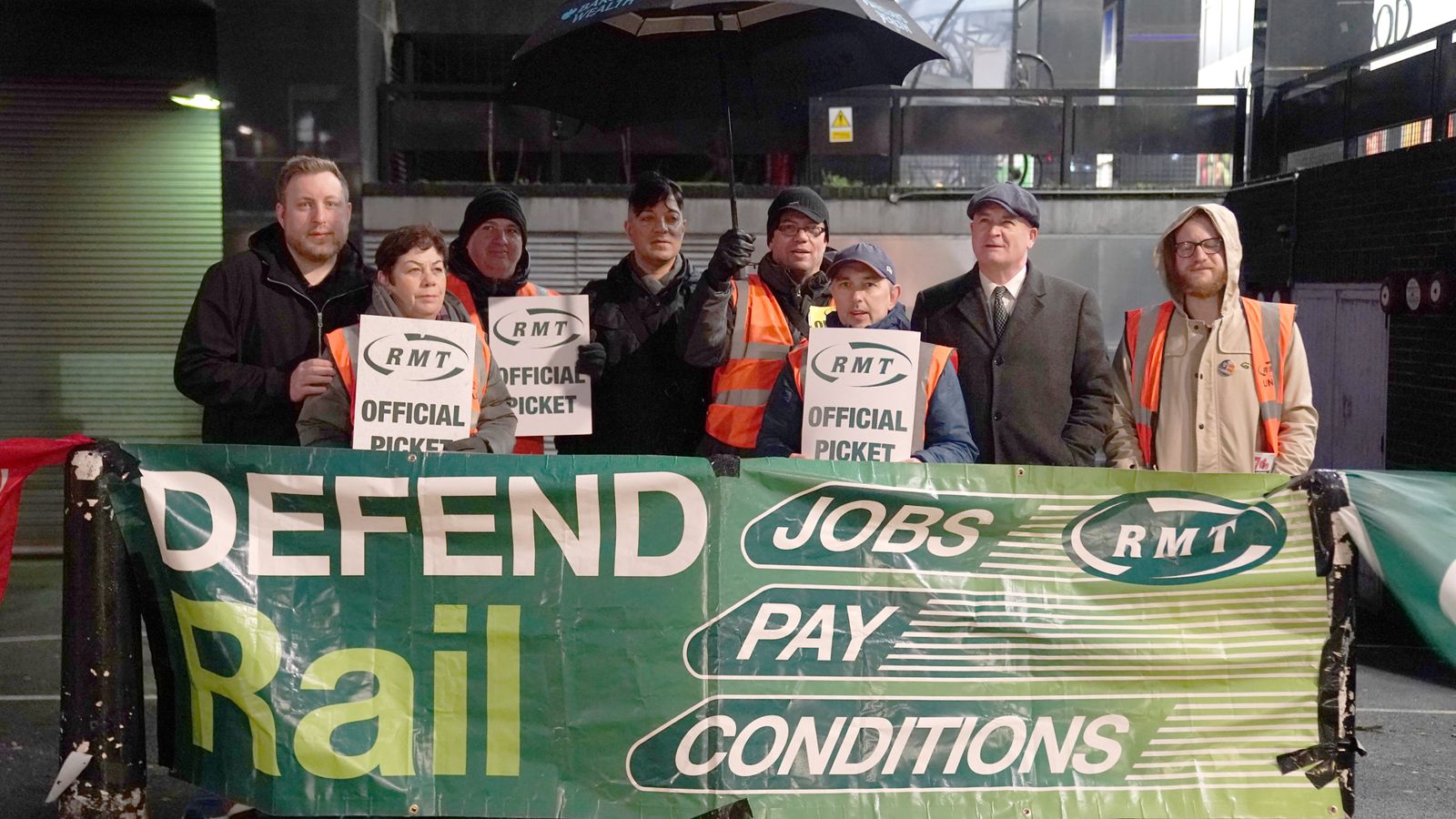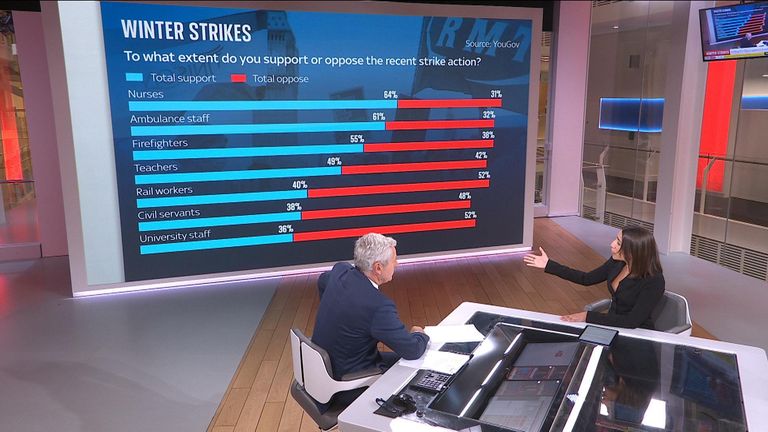Tens of thousands of rail workers may return to picket lines after their union rejected revised pay offers to avert more walkouts.
The RMT union had been deliberating over a 5% pay rise, backdated to January last year, along with a 4% hike for 2023.
Train operators and Network Rail called it their “best and final” offer in a bid to end the long-running dispute that has disrupted passenger journeys since June.
There have already been 19 days of strike action and it was hoped that resolutions on the key issues, including job security, were close.
But the RMT called the offer “dreadful” and claimed the changes to working practices would result in “a severe reduction in scheduled maintenance tasks, making the railways less safe, the closure of all ticket offices and thousands of jobs stripped out of the industry when the railways need more investment not less”.
General secretary Mick Lynch said: “We have carried out an in-depth consultation of our 40,000 members and the message we have received loud and clear is to reject these dreadful offers.
“Our members cannot accept the ripping up of their terms and conditions or to have safety standards on the railway put into jeopardy under the guise of so-called modernisation.”
The RMT said it will begin to make preparations for a re-ballot when the existing strike mandate runs out in May, meaning walkouts could continue for the rest of the year.
In the meantime, the union said it will seek further meetings with Network Rail and the Rail Delivery Group to try to achieve a negotiated settlement.
Strikes will continue ‘for as long as it takes’
Mr Lynch warned: “It is now time for the employers and the government to listen to railway workers in their tens of thousands.
“Our industrial campaign will continue for as long as it takes to get a negotiated settlement that meets our members’ reasonable expectations on jobs, pay and working conditions.”
While the RMT said it had consulted all its members, the government and industry leaders deplored the union for not putting the offer to a vote, with the rejection made by the union’s national executive committee.
Read More:
Who is striking this year and when?
Evidence suggests government seeking conflict over rail strikes
Rejection ‘kick in the teeth’ for passengers
Transport Secretary Mark Harper said: “The RMT’s rejection of these best and final offers is a kick in the teeth for passengers across the country and their own members, who having been ordered to take strike action are now being blocked from having a say on their own future.
“The RMT’s leaders should have had the courage to allow their own members to have the chance to vote on their own pay and conditions, rather than making that decision for them behind closed doors.”
The Rail Delivery Group (RDG), which represents train operating companies, said the pay offer was a 13% rise over two years for the lowest paid “which they will now miss out on without even having had an opportunity to have their say”.
A spokesperson said that “having listened to the union’s concerns during recent negotiations, we went back to the table with substantial changes”, including a minimum 9% pay rise over two years and the removal of driver-only operation trains (DOO).
While pay has been a central issue in the dispute, the union strongly opposes DOOs and any “modernisation” reforms that could lead to cuts and threaten job security.
But the government and industry have maintained that a pay increase would have to be funded by “reforms” which they say are vital for the railways’ long-term survival.
The RDG spokesperson said: “We remain willing to engage, but the RMT leadership must now accept the urgent need to make the railway fit for the future for both our people, and the communities the railway serves.”
‘Wasted year’
The new offer was put to the union after the transport secretary gave train operating companies a “revised mandate” to go into negotiations, insisting there had been “big changes” in the government’s approach since he took over the role from Grant Shapps.
Labour said Mr Harper’s remarks showed there had been “a wasted year” under the previous transport secretary, who “refused to engage or even meet with unions” when the strikes began in 2022.
Mr Harper insisted today’s offers on pay and reform were “fair and reasonable”, adding: “It is now clear that no realistic offer is ever going to be good enough for the RMT leadership.”
On top of the rail strikes, the government continues to battle with a wave of public sector walkouts from nurses, ambulance workers, teachers, civil servants and others, all seeking a better deal over pay as inflation bites.

